Heathen Harvest: As a personal, long-time fan of Ordo Rosarius Equilibrio residing in the United States, I am inclined to ask if there is any potential possibility of a future North American tour or any selective cities you would be interested in playing, or would you just be interested to visit in general?
Rose-Marie Larsen: It has always been a dream of mine to visit the United States and North America in general, both personally as well as professionally, but the inability to cross the Atlantic doesn’t depend on our lack of interest. On the contrary, the issue lies more willingly with the commitment and likely the resources on the other side, but we promise to keep trying.
The optimal scenario would be to travel all the way from the deepest south up to the highest north, but over time we would gather friends and family from all across the globe, so I suppose that when we finally come, we will most likely visit a handful of cities all over North America such as New York, San Francisco, Los Angeles, and Toronto. But if we come as a family, we are naturally obligated to go to Florida as well.
HH: I thoroughly enjoyed the “Satyriasis” split you released with Spiritual Front in 2005. In fact, this album has received rotational listening sprees for me in the last six years, and additionally remains as one of my favorite collaborative releases to this day. Do you foresee yourself and Tomas doing any future split releases in a similar manner or have any particular ideas in mind?
RL: I know Tomas has been speaking of a sequel to Satyriasis, and every time we meet Simone (Salvatori) there is a dialogue about this particular continuation, but when and how we will be able to turn this idea into a reality, I do not know. I suppose time will tell.
There are also plans to release another collaborative album with the Estonian band (and label-mates) Forgotten Sunrise, but as far as I know, this project is still in its cradle. Right now we are focusing on the release of Vision:Libertine, which has taken a lot more time to complete than we ever expected.
HH: With the closure of Cold Meat Industry last year and nearly all of Ordo Rosarius Equilibrio’s releases distributed through them since 2000, has the transition to your new label, Out of Line, been fairly smooth, or has it taken a little while to grow accustomed to?
RL: Personally, it’s been quite refreshing to see new faces and expand our views a little, especially with my new-found (I know, I’m a late bloomer) love for DIVE, but regardless of this relatively new scenario, it is still fair to say that the grass isn’t greener in Germany and that the record industry is basically the same everywhere. Of course we miss parts of what we had with Cold Meat Industry—the family feeling, the bi-regular parties, the collective trips, and the insane and memorable incidents and accidents that came along with them. But yes, things have run quite smoothly. The transition has been good and we can only hope that Out of Line will prove as rewarding with Vision:Libertine as they were with the release of Songs 4 Hate & Devotion.
HH: I have been to Sweden a few times now and have noticed that people in your country are generally more laid-back when it comes to “taboo” topics than they are in North America—one particular example being the topic of sexuality and sexual artistic expression. With that being said, has O.R.E. been able to avoid controversy in terms of live performances or any of the content contained in your albums?
RL: I don’t think that we are particularly that explicit; do you? We tease, provoke, raise questions, and present alternative answers to what is presumed true, but I don’t think we are either obscene or especially tasteless. We have never had any complications with regard to explicit content in Sweden or Scandinavia in general, but with our last Cold Meat Industry release, O N A N I – [Practice Makes Perfect], in 2009, we got censored as Sony DADC (the Austrian pressing plant that Cold Meat Industry always employed) refused to press the CD due to its explicit and sexually oriented content. A few years earlier we were also banned from performing in Berlin, Germany, at the so-called ‘Information wants to be free’ Spoken-Word Festival for allegedly being Satanic fascists (we didn’t know, but evidently they did), and right now we are up for examination by the Chinese government to see if we are harmless enough to be granted access to China in September.
HH: Aside from your contributions in O.R.E., are there any solo projects which you partake in during your personal time (music or art-related)?
RL: (laughs) No, there is nothing. I would never have been in contact with Cold Meat Industry or this entire scene if it hadn’t been for meeting Tomas. My interests prior to our meeting were more focused on literature and drama, but I have an artistic dream of collecting and releasing all of my Swedish writings, even if it is just in one single copy that I will keep under my pillow.
I do, however, enjoy collaborating with artists such as Empusae and Solitary Experiments when we are able to step outside of our own box and record for and with other artists’ accomplishments. But time will tell if other artistic expressions will come my way I guess. Photography and film come to mind and are close at hand.
HH: Although Tomas is the one behind the majority of O.R.E.’s musical arrangements, are there any songs which remain particularly special to you, or stand out as more memorable than others for personal reasons?
RL: This may seem odd, but ‘Conquest, Love & Self-Perseverance’ and the songs ‘The Blind and Leading the Blind are Leading the Blind’ and ‘In the Grassy Fields Where the World Goes to Sleep (Again)’ are special to me because they represent a period in time when love blinded me and lust consumed me. I had just met Tomas and we were madly in love, and I had just heard Ordo… for the very first time.
Another dimension of O.R.E. that is special to me are those rare moments when I am able to step outside the box and listen to it as a non-participant, when I realize what a great writer/poet Tomas actually is and how much I enjoy his writings.
And finally, Vision:Libertine is very special to me, because of how it has developed; from its very genesis, the way it has materialized, the hardships we have endured over the process, and the final results I am able to hear and behold now when it is almost done. It will always have a very special place in my heart.
HH: O.R.E. has played a relatively important role in of your life for the last fourteen years. Now, with you being a mother and devoting your time and energy to your family, as well as your musical family, do you feel that your children have impacted and inspired you as an artist in some ways?
RL: Today (March 19th) we are celebrating sixteen years together, so O.R.E. has played an important role in my life for a long time.
Becoming a mother and a parent changes everything. Suddenly your children become the very core of your existence—you are no longer your own epicenter, but are more willingly a supporting actor in your own life.
But in the midst of all the love, affection, and unconditional commitment, you can sometimes miss the simplicity of recording in solitude and silence, to take naughty pictures, and make adult videos without locking doors and making sure that it’s way past midnight (laughs), and traveling bi-regularly across Europe for concerts. So yes, they have impacted and inspired me in every imaginable way.
HH: While on the topic of personal growth—as previously mentioned, your involvement both with Tomas and O.R.E. have both been a lengthy and ongoing journey. Themes of love, sexuality/promiscuity, war, and spirituality are all very prominent in your music. Certain artists choose to separate some of their beliefs from the way they present and share themselves in “everyday” life, while others choose to express themselves freely, in the same manner as their artistic persona at the core value of their being. With that said, do you feel that the concepts in your music go hand-in-hand with your own personal values, even if just to some degree?
RL: I can fully support and stand behind everything that O.R.E. represents. It certainly reflects and represents who and what I am—my persona and my intrinsic nature—but although I wear high heels, stockings, and garters—even at work—it doesn’t necessarily mean that I advocate my involvement in O.R.E. in my professional life. It’s not especially surprising that people don’t understand and/or agree with what O.R.E. represents, but with both age and parenthood you realize that not all battles can be won, and that some battles are not worth either the time or the commitment they demand. I do not think that O.R.E. and what we do and say is especially provocative, but as we are forced to associate with other people, you do realize that the general tolerance level is so much lower than you initially believe. And with parenthood in this modern world, you are also faced with the realization that everything you say and do is inevitably available for your children, your children’s friends, and their parents to see, hear, and judge, which unfortunately becomes a problem—not for me and Tomas personally, but for our children in their relations and social interactions. It’s sad, and insane, but unfortunately a reality.
HH: Obviously, both yourself and Tomas are far from hesitant to express the way you feel about love and sex. Do you feel that both are equally as valuable and nourishing in the same way that food and water are for the body? Similarly, do you also feel that one (in terms of love and sex) does not overpower the other?
RL: Sex and Love are as equally important for our well-being as food and water are for the body to endure. We are creatures of pleasure and affection, and forsaking either would render us incomplete, it wouldn’t kill us the way that a lack of water and food surely would, but it would create emotional and physiological tensions and discomfort even to the extent of social inadequacy. But in the end, it’s all about equilibrium and how we value the significance of everything we hold important. At times, one is more important than the other, and in a relationship it’s a lifelong process of keeping these periods synchronized. So far, Tomas and I have managed quite well.
HH: Your first music video, which was released for “IMBECILE, My Idiot Lover”, from the “Songs 4 Hate & Devotion” EP (2010), was just as I had visualized many of your songs to be like: dark, erotic, and passionately deviant. Although it is a bit brief and more along the lines of a teaser than anything else, do you and Tomas plan on doing any more music videos in the future?
RL: Film and photography are both something we work with on a more or less permanent basis. It is a mutual and very inspiring interest. There can never be too much of either, and right now we are trying to make new photos and video for Vision:Libertine with the means and methods we possess.
The cinematic visions of ‘IMBECILE, My Idiot Lover’ are the results of Carlo Roberti and Solobuio—a fantastic director with a very keen sense of perception. We love him and his artistic visions, and we will surely work with him again (which we have already discussed), but the upcoming material will be directly linked to and realized by us, and how we personally envision Vision:Libertine: possibly more arty and adult, maybe even less perfect, but unconditionally reflecting a very genuine and stalwart vision.
HH: The atmosphere of a live performance, as well as its audience, can be both encouraging as well as empowering for artists, although they both transmit different energies in both environments. Since you have played quite a bit of live shows in the past, do you feel more uplifted and/comfortable performing in a studio environment or during a performance on stage?
RL: These two situations are not really possible to compare, as they are so totally different.
Performing live is revitalizing, beautiful, and intimidating. It’s a unique process every time that comes with both benefits and occasional punishment, while the studio environment is another entirely different process—a sheltered environment where there is room for mistakes and retakes. Both situations have their benefits, and one wouldn’t be the same without the other. Performing live we learn what works and what doesn’t. The audience (occasionally) gives us energy, and in the studio we utilize what we have learned on stage and reinvest that energy to advance musically and spiritually.
HH: I would like to extend my utmost gratitude to you for taking the time to participate in this interview. Lastly, if there is a favorite quote or saying which holds a great deal of meaning to you, please do share it with us here.
RL: How can a girl like me, so in love with words, only post one favorite sentence that holds great meaning to me? It’s not possible, but here are two that are dear to me:
‘One must still have chaos in oneself to be able to give birth to a dancing star.’ —Friedrich Nietzsche
‘Mod utesluter inte rädsla. När jag var 35 bestämde jag mig för att inte längre vara rädd. Innan var jag rädd för allt. Jag har kvar rädslan, men lever med modet att våga bestämma mig. Utan förmågan att ta beslut är man feg. Jag har aldrig misslyckats när jag bestämt mig.’ —T. Flinck
http://heathenharvest.org/2015....ilibrio 








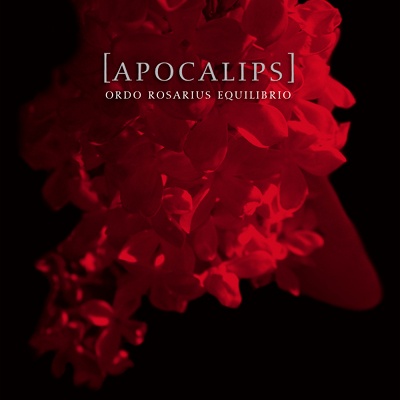





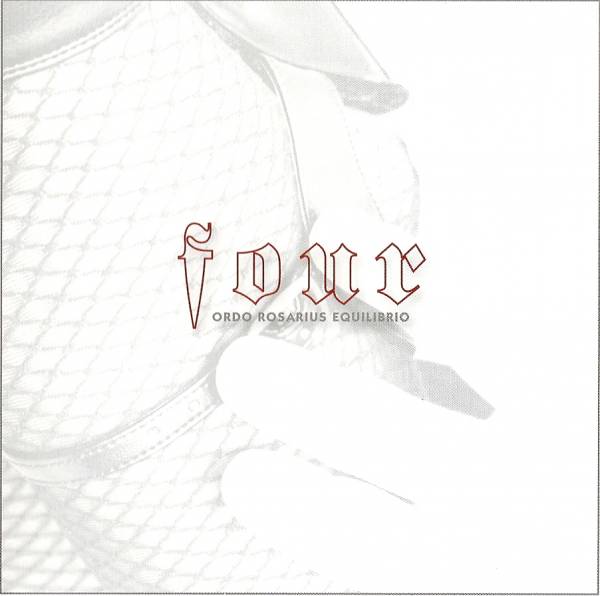
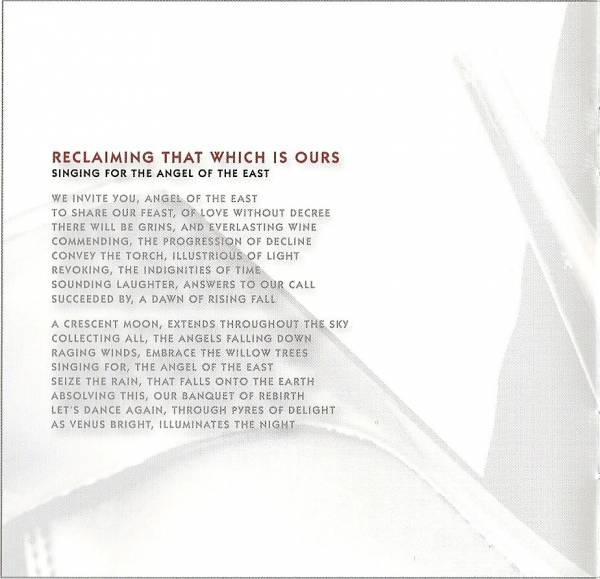
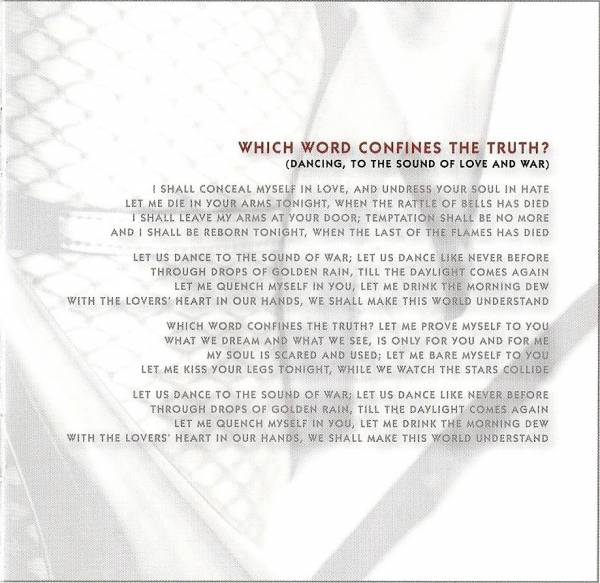
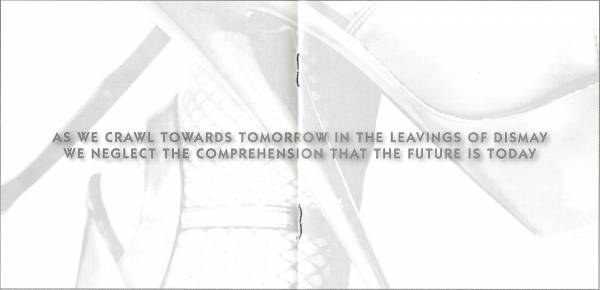
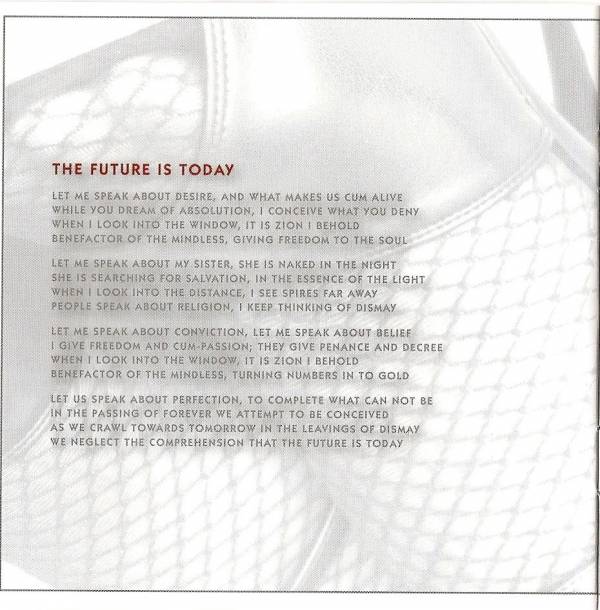
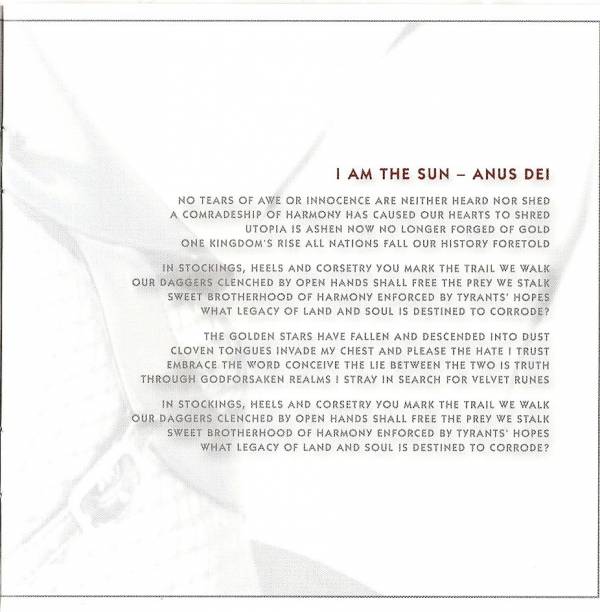
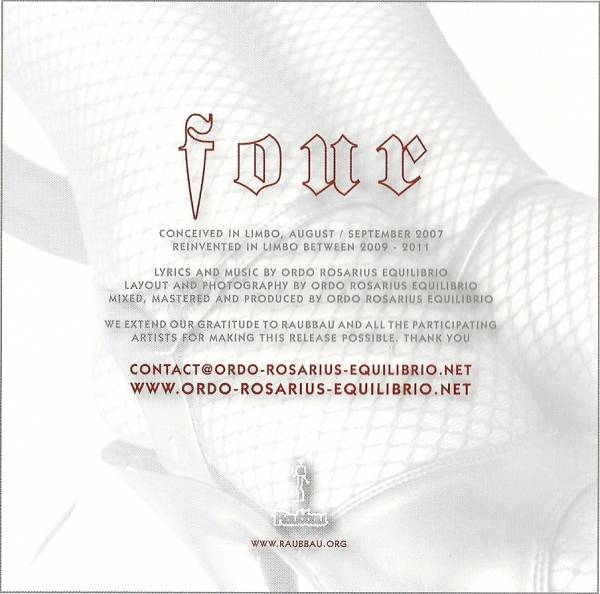
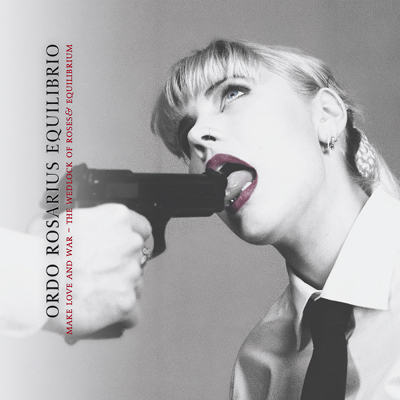
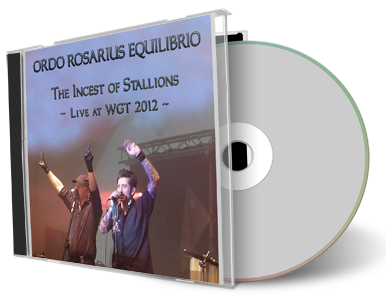
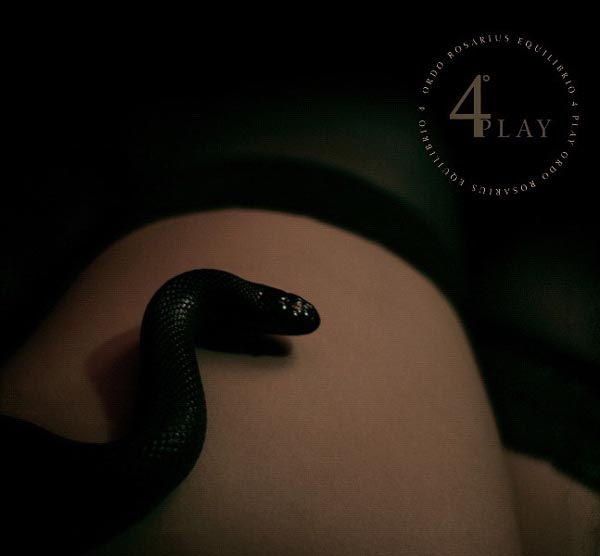
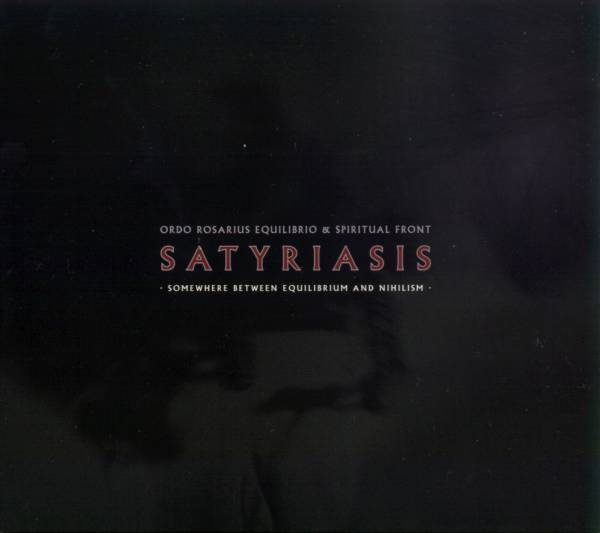
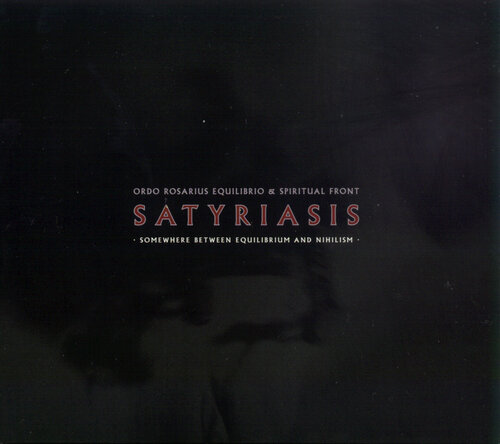










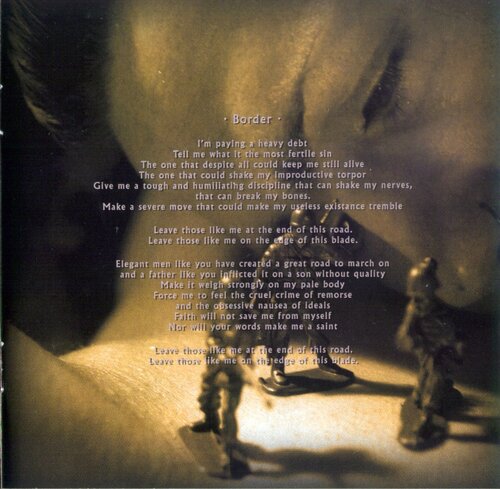




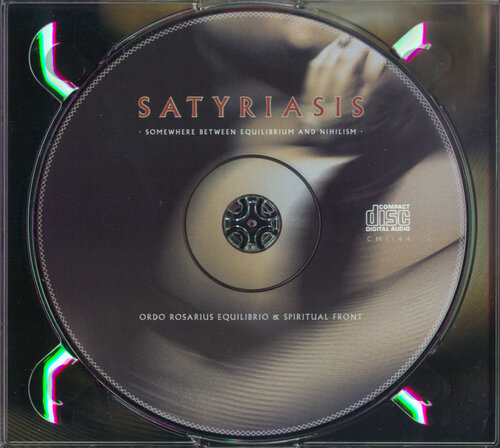

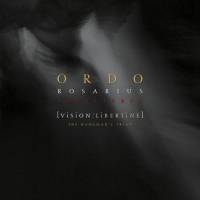



 CBR 320 Kbps | 38.1 Mb:
CBR 320 Kbps | 38.1 Mb: 









